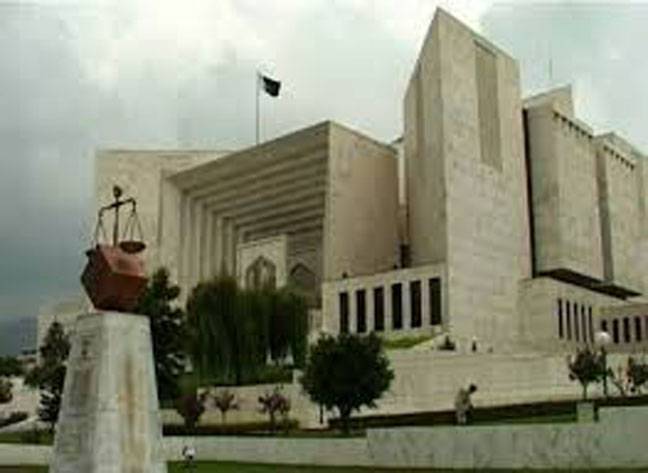SC can’t vet lawmakers on moral grounds: PTI counsel

IMRAN, TAREEN OFFSHORE COMPANIES | Says Article 62(1)(f) of Constitution can’t be used for disqualification
ISLAMABAD - Naeem Bukahri, counsel for Pakistan Tehreek-e-Insaf, on Tuesday took the plea that the apex court could not examine parliamentarians on moral grounds.
Naeem Bukhari who also represented Imran Khan in the Panama Papers case contended that Article 62(1)(f) of the Constitution could not be used as a tool for disqualification. Interestingly, his stance in Panama Papers case was that Prime Minister Nawaz Sharif should be disqualified under this article.
A three-judge bench, headed by Chief Justice Mian Saqib Nisar, heard PML-N’s petition against Pakistan Tehreek-e-Insaf Chairman Imran Khan and General Secretary Jehangir Tareen for having offshore companies.
Bukhari relied upon the judgment of Justice Sheikh Azmat Saeed rendered in Panama Papers case, which says: “Article 62(1) (f) of the Constitution cannot be permitted to be used as a tool for political engineering by this court nor should this court seek this power to examine candidates on moral grounds.”
Earlier, Justice Umar Atta Bandial asked Naeem Bukahri why the UK flat was not disclosed in the nomination papers. He said there were judgments of the Supreme Court on Haqooqul Ibad (duties towards mankind) and Haqooqul Allah (duties towards Allah). “We are examining the law Imran has violated,” Justice Bandial said. He further asked Naeem Bukhari what the consequences would be for non-disclosure of the asset.
Naeem Bukhari contended the petitioner’s case was that whether Imran Khan fraudulently took advantage of the tax amnesty. The counsel said his client had not evaded tax, adding after the tax amnesty he declared the UK flat in his tax returns and in the nomination papers.
The chief justice remarked the case of the petitioner was that Imran Khan was the owner of the London flat, but he did not mention it in his tax returns and the nomination papers.
The chief justice stated the petitioner’s further stance was that on account of the concealment of the UK flat, Imran Khan was not honest, found mischievous and had sought declaration from this court under articles 62 and 63 of the Constitution.
Bukhari contended: “Tax evasion is not dishonesty, but misdeclaration of assets.” He said Imran Khan started filing tax returns from 1981 and declared his London flat under amnesty scheme in 2000. “I along with thousands of citizens took advantage of the amnesty scheme,” Bukhari added. He said that after the amnesty scheme Imran Khan was obliged to declare his flat, so mentioned it in his nomination papers in 2002.
The chief justice also observed that for Bani Gala land Jemima Khan sent $ 100,000 from the UK, but its record was not traceable. Bukhari admitted it and said the record would be submitted in this regard. He said it would not be possible to submit attested documents in two days, but promised he would furnish the record even if he had to go to England.
Bukhari filed Imran’s tax returns in a sealed box for the perusal of the bench. He also read Imran Khan’s speech made in the National Assembly and Jemima Khan’s latest interview. He said Imran Khan brought all the money to Pakistan, which he earned abroad.
Bukhari concluded his arguments on Tuesday. From Wednesday Sikandar would plead the case on behalf of Jehangir Tareen.





